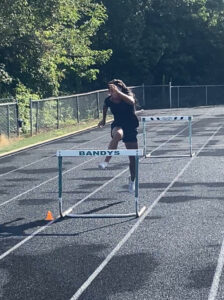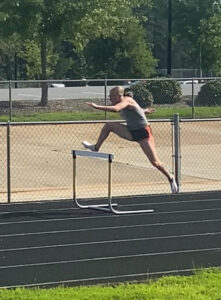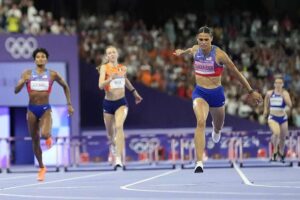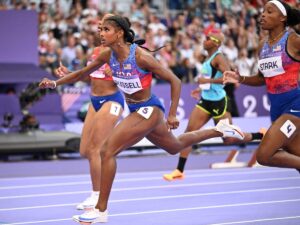[/am4show]
[am4guest]
[/am4guest]
Have feedback on our August issue? Feel free to CONTACT US!
If you missed last month’s issue, check it out HERE!
Coaching the Ambidextrous Hurdler

Coaching the Ambidextrous Hurdler by Steve McGill A couple weeks ago, I decided to make a change in the hurdling technique of Raelle Brown - a high school junior that I’ve been training over the summer. The change is major: from here on in, we’re going to use the right leg as her lead leg...
Popovers and Crouched Starts Workout

Popovers and Crouched Starts Workout by Steve McGill In past years, when deciding what to do on hurdle days, I’ve usually reserved one day for hurdle drilling (with a heavy emphasis on technique) and a second day for either going for more volume (with a heavy emphasis on rhythm) or going faster (with a heavy...
Excerpt #1 from The Spiritual Dimension of Hurdling

Excerpt #1 from The Spiritual Dimension of Hurdling by Steve McGill I’m writing another book. Made a lot of progress on it over June and July, so I’ll begin to publish excerpts from it here in The Hurdle Magazine. The book, which I’ve tentatively titled The Spiritual Dimension of Hurdling, delves into the dimension of...
The 400 Hurdles Greatness Continues

The 400 Hurdles Greatness Continues by Steve McGill Whether we’re talking about World Championship years, an Olympic year, or a year with no major international championship meet, the 400 hurdles never fail to deliver something epic, on both the women’s side and the men’s side. While the 2021 Tokyo Olympics served as a pinnacle on...
Going for Gold in the 100/110 Hurdles

Going for Gold in the 100/110 Hurdles by Steve McGill In looking at the sprint hurdles at the 2024 Olympic Games in Paris, it seems evident that the United States is stronger than it’s been in quite some time, which is saying something, because the US has always been strong in both events. Of the...
The Proclivity of Eating Disorders Among Track Athletes

The Proclivity of Eating Disorders Among Track Athletes by Melinda Burris Research has found that track and field athletes are prone to developing eating disorders (ED), dysfunctional dietary behaviors (DE), and Relative Energy Deficiency in Sport (RED-S)—all serious clinical conditions that can have long-lasting negative impacts on physical and mental well-being. This article discusses these...

